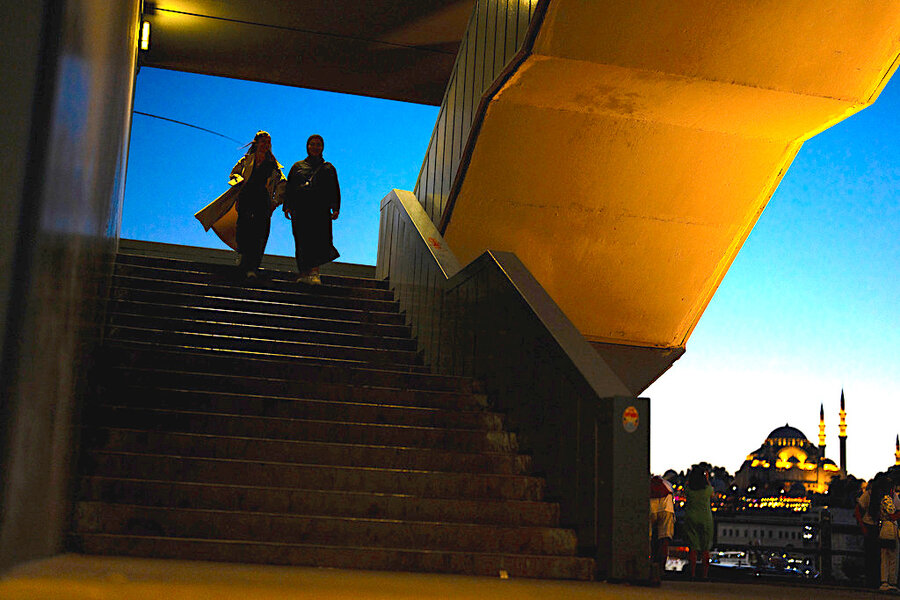The call of history in a Turkish court
Loading...
In a speech on Wednesday, the chief executive of the European Union said that “the call of history” – meaning the need to stop Russia from taking land from its neighbors – requires adding more countries to the 27-member bloc.
“It is clearly in Europe’s strategic and security interests to complete our Union,” said Ursula von der Leyen, president of the European Commission.
Her timing was perfect. On the same day, a court in Turkey – a NATO ally that has tried for decades to join the EU – took a step toward meeting one criterion for membership: protecting the freedom of association and freedom of expression. The court rejected an attempt by the government of President Recep Tayyip Erdoğan to shut down a prominent women’s rights group that has been trying to end violence against women.
Prosecutors had made a vague charge against the group, called We Will Stop Femicide Platform, saying that the group is “against the law and morality.” The group’s secretary-general, Fidan Ataselim, told Agence France-Presse that the court ruling “offers society a spark of hope about putting trust in the justice system.”
Those sparks of hope could be increasing. The EU and Turkey have stepped up their negotiations since May when President Erdoğan was reelected. With his political survival intact, he may be ready to challenge Turkey’s Islamic conservatives, who want him to keep rolling back protections for women. In 2021, Turkey withdrew from a European convention aimed at combating violence against women.
“At a time when the enlargement policy is back on the EU agenda due to geopolitical concerns, excluding Turkey from this process would be a great strategic mistake,” said Turkish Foreign Minister Hakan Fidan.
The EU insists that any aspirant for membership, such as Turkey or Ukraine, still meet the bloc’s high standards. “Our future is a Union of freedom, rights and values for all,” said the European Commission president. “We will be very strong on the rule of law.”
Turkey in particular must show real progress on its “democracy and the rule of law,” said Olivér Várhelyi, EU commissioner for enlargement.
While violence against women in Turkey has risen, the country has made some progress on women’s rights. The May elections saw the highest number of women elected to parliament in Turkey’s recent political history. When the women’s national volleyball team won the European championship this month, the players returned home to a hero’s welcome – and a congratulatory phone call from Mr. Erdoğan.
The values that bind the EU are also a shield from aggression, as Turkey may be learning. If it adopts EU-style reforms, it may well be heeding the call of history.







